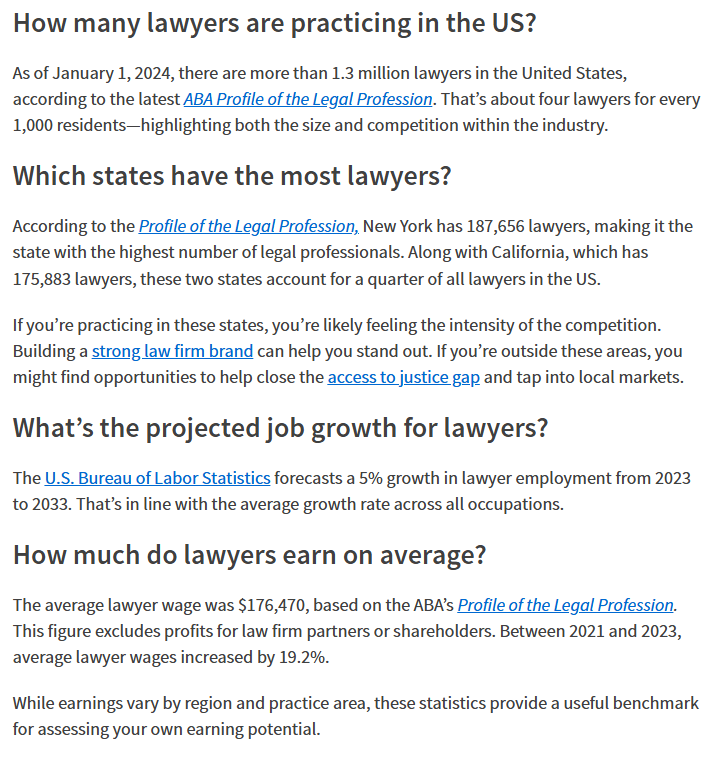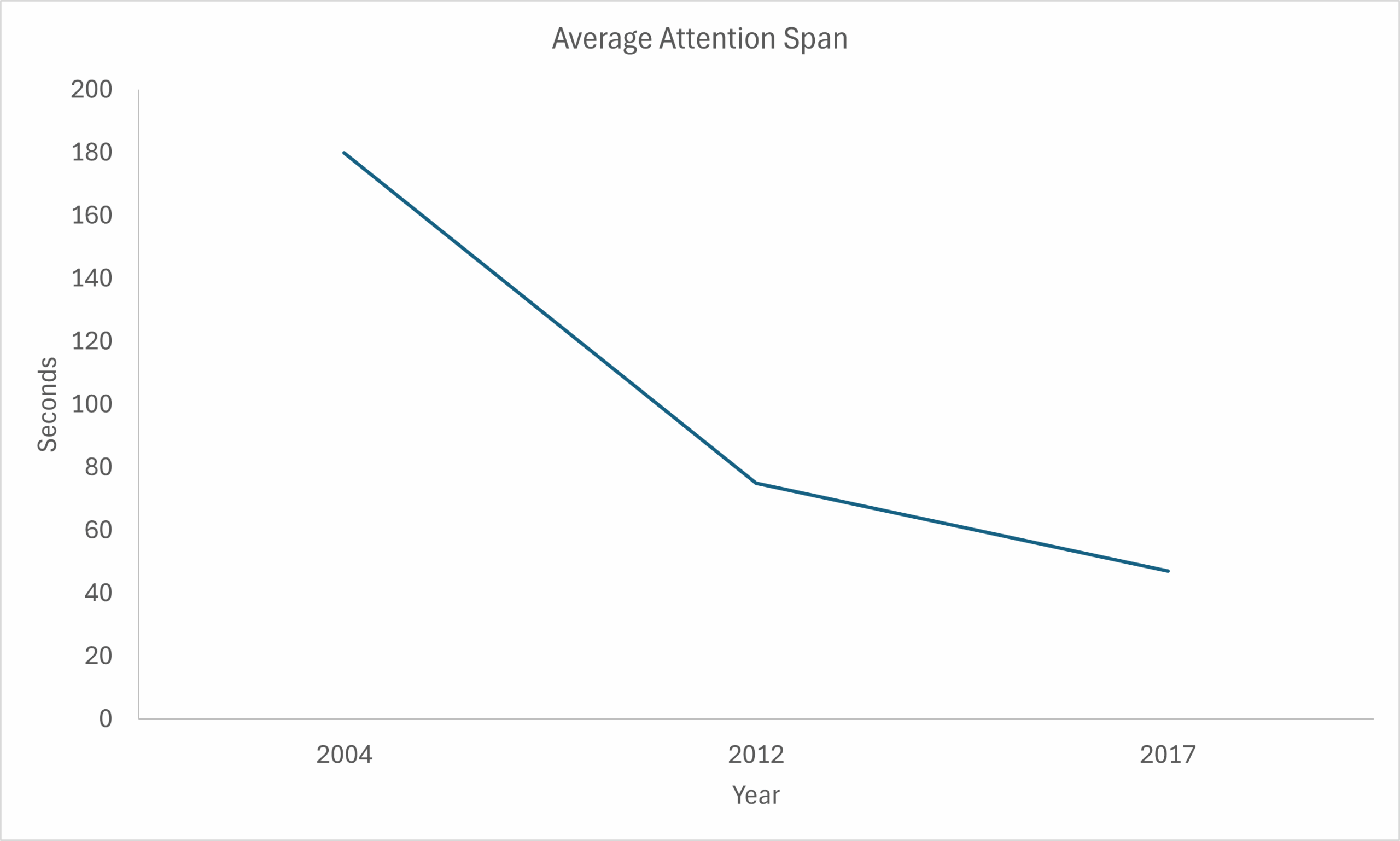Want Your Content to Rank? Think Like a Journalist
-

Jonas Trinidad
- Blogs
-
 November 03 , 2025
November 03 , 2025 -
 12 min read
12 min read
Anyone can write. But we do it right.
These were the words printed on a t-shirt I received back when I was a journalism student (in Asia’s oldest university, no less). Besides the fact that the shirt still fits despite gaining weight, the meaning of the slogan remains true around 20 years later. Writing is easy, but quality writing is a challenge in itself.
As far as a journalism graduate’s career prospects go, creating SEO-friendly content isn’t exactly high up on the list. That didn’t stop me from using all that I learned from producing good write-ups. However, even as Panda had just rolled out, SEO then was still a game of quantity. The winner was whoever could get more content out more quickly.
Fast-forward to today, and content standards have changed for the better. Low-effort ones are now penalized, and a recent University of Kansas study found that people trust human-made content more than AI-generated ones. There’s never been a better time to think like a journalist when creating content than now.
Why Think Like a Journalist?
To understand why this is the case, we have to go back to the time two animals (well, one of them is a human with an animal for a surname) changed the way we create content forever.
Google’s Panda and Penguin updates in the early 2010s sent a message across the Internet: “make quality content or disappear from search results.” If this search engine giant aims to be the leading platform for universally accessible information, it needs that information to be high quality. Keyword stuffing and link spam, common practices at the time, won’t cut it.
In 2014, Google introduced the E-A-T criteria, which stand for expertise, authoritativeness, and trustworthiness. Never will websites be allowed to post content just because; they now have to serve a purpose that benefits visitors. Never will future content be like…whatever this is:

At least capitalize “Gold Coast” and “Sunshine Coast.”
Try giving the content above a read. I’ll wait.
Did it help you learn more about pet sitters? Did it motivate you to get one for your fur baby? Did the number of unnatural keyword insertions drive you nuts?
Google wanted less of this populating search results, especially when there’s quality content out there that’s more deserving of the top spot. In fact, it doubled down on its commitment in 2022 by adding another E, experience, to the criteria, evolving into the E-E-A-T we’re all familiar with.
Contrary to popular belief, E-E-A-T isn’t a ranking factor. For all the advancements the Google algorithm has adopted, it still can’t understand human context and nuance reliably. Instead, the search engine maintains a team of human search quality raters to manually review each piece of content. These people are another reason not to create content solely for search engines.
As for whether or not thinking like a journalist is important for this, don’t take it from me. Google more or less said the same thing, at least in a previous version of their Search Quality Evaluator Guidelines (ca. September 2021).
““High E-A-T news articles should be produced with journalistic professionalism – they should contain factually accurate content presented in a way that helps users achieve a better understanding of events. High E-A-T news sources typically have published established editorial policies and robust review processes.”
Now that’s out of the way, here are my recommendations for thinking like a journalist.
Take Advantage of Experience
Last June, a local magazine in Denver ran a story on a clinical study that involved treating anxiety and existential distress in cancer patients with psilocybin. But far from being your run-of-the-mill feature, author Robert Sanchez decided to be a test patient himself to feel its effects firsthand. This came at a time when the past year had been rough for him.
Sanchez noticed positive changes while taking the pills (though the article never explicitly states them as the cause). Regardless of the outcome, he said in a later interview with the Nieman Foundation at Harvard that being a test subject allowed him to form a connection with his readers. He adds that one of a journalist’s duties is to demystify subjects. (1)
This case shows the power of firsthand experience in creating content. In Google’s terms, it’s the extra ‘E’ in its E-E-A-T criteria. After all, who better to talk about a subject than someone who has already lived through it?
It gets better. A journalist can’t claim to be an expert in any niche or profession (other than being a journalist), relying on specialists in the field for facts. As such, expertise and authoritativeness follow demonstrating firsthand experience.
| Factor | Journalist | Specialist |
| Experience | Can talk about the customer experience | Can discuss the latest news and trends in their niche |
| Expertise | Lacks education or training in the specialist’s niche | Is formally educated or trained in their niche |
| Authoritativeness | An authority in reporting based on hard facts | An authority in the niche they work on |
| Trustworthiness | People trust them to deliver balanced news | People trust them to deliver quality products or services |
If there’s anything that’s all Greek to the consumer, the specialist’s job is to explain it. It’s a dentist’s job to break down how dental implants work, just as it’s a lawyer’s job to discuss a state’s personal injury laws. They have an advantage in expertise, and they would do well to take full advantage of having all four factors.
Provide Reliable Sources
Journalists aren’t ones to put words in others’ mouths. No matter how obvious, they must report events as they happen and cite a person’s quotes word for word. Even in presenting editorials or opinions, they’re still duty-bound to stick to the facts.
For this reason, part of a journalist’s code of ethics involves citing their references. Open access to reliable sources is more important today, as AI is capable of creating fake news that’s as believable as the real deal. Misinformation can be dangerous, especially if your business deals with Your Money, Your Life (YMYL) topics. (2)
I’ve thrown around the term YMYL a couple of times now, so let me explain what it means. Google favors E-E-A-T-aligned content whose information can affect the health and well-being of readers, referred to as YMYL content. Some examples include: (3)
- Updates on local and federal laws and policies
- Information on health and wellness products
- Safety guidelines on the use of certain products
- Requirements for opening a savings account
Essentially, it’s called YMYL for a reason. Paying for topnotch products and services greatly improves a person’s quality of life, while getting duped with low-quality ones impacts their ability to pay for another. If the latter drives them bankrupt, their quality of life degrades.
That said, YMYL or not, providing sources in informative content benefits visitors in several ways. For starters, it contributes to the content’s and the website’s trustworthiness. It lets readers access the source to confirm its reliability for themselves.
You can allot space for a list of references at the bottom of the content or, as the Clio blog post below shows, provide a link for each data point. Not every fact needs to be linked to a source, though it’s a must for claims and figures. This way, you can avoid getting in trouble, if not in legal hot water, for making potentially misleading claims.

Source: Clio
While citing sources is one thing, citing reliable sources is another. Not everything posted on the Internet is believable, especially if they aren’t based on fact. The student textbook Writing for College: From Competence to Excellence classifies sources into four tiers. (4)

You’d want to aim for the topmost tier, as this kind of content was rigorously researched and reviewed by the author’s colleagues. However, this isn’t always available for specific niches, in which case, second-tier sources will do. If possible, cite at least three primary sources for your informative content.
Above all else, refrain from citing Wikipedia articles as a reference. Not only does the hierarchy categorize the website as a bottom-tier source, but it also allows anyone to edit its numerous entries. It doesn’t mean it’s useless, however, as most content creators use it as a jump-off point for searching for more credible references. (4)
Avoid AI Temptation
Back in my days, we didn’t have confangled modern doohickeys to do the writing for us. It was all blood, sweat, and tears (plus endless cups of coffee). And let me tell you, editors were unforgiving as heck, even to the most basic mistakes.
Aged rant aside, I wrote this piece (and several others before it) without using chatbots or other AI generation tools. My hesitation to rely on such things may stem from my passion for writing, be it SEO articles or fan fiction. I don’t fancy leaving the task to a machine that barely grasps the concepts of creativity and nuance.
But at the same time, I understand that writing isn’t everyone’s cup of tea. It eats up most of your time, writer’s block is a cruel mistress, and by the time you finish your piece, your mental state might have been reduced to a single brain cell (two if you’re lucky). For these people, anything that eases the process is a blessing, even if it’s AI.
Google is clear on its stance on AI-generated content; it focuses more on the quality than the method. Search team analyst Gary Illyes reiterated this during the recently concluded Search Central Live, adding that AI content only becomes a problem when it’s low quality and the training data used is just as terrible. (5)(6)
Here’s the thing: AI can be an invaluable asset in content creation. That said, you need to draw the line somewhere in the writing process.

Harness AI for tasks that it can already perform well, namely gathering information and catching grammatical mistakes. Get ChatGPT (or any chatbot) to generate an outline of what you want your content to contain, but don’t pass its results off as your first draft. Instead, use the output as a springboard for delving deeper into the topic of your choice.
On the other hand, the actual writing should still be left to humans. Don’t worry about the first draft being awful because it’s supposed to be. It’s a diamond in the rough that needs to be cut and polished (or revised and edited) to bring out its luster.
However you use AI, remember not to leave the entire writing process to it. AI content may rank high, but it won’t last long without human input.
Be Efficient With Words
Most news stories start with a concise summary of the topic that contains what journalists call the 5Ws (who, what, where, when, and why) and 1H (how). Many go so far as to call it a basic tenet of their profession, providing readers with as many basic answers as possible.
Of course, content for marketing is too different for this approach to be viable. Regardless, conciseness still applies because of dwindling attention spans. According to a study led by Gloria Mark, Chancellor’s Professor of Informatics at the University of California, Irvine, the average attention span has dropped over the years.

Data source: Speaking of Psychology podcast, American Psychological Association
If you think today’s gadgets and online activities are the root cause, that’s only part of it. Mark points to the habit of multitasking as the rapid shift between activities increases the risk of errors, causing stress levels and blood pressure to rise. (7)
When you have a generation that barely has time for one thing, conciseness becomes the name of the game. A single word can replace whole phrases, as these examples show:
| Phrase | Word |
| Due to the fact | Because |
| Discussed the merits | Praised |
| Student of a specialist | Apprentice |
| Various methods | Methods |
| Not necessary | Unnecessary |
Using the active voice is another effective way of being concise. This form of writing shows as if the subject performs the action or is being described.

A savings of two words may not look much, but it can go a long way when you apply active voice to the entire piece. Concise content saves readers the trouble of going through lines of text to find the information they want. And if you believe that longer content ranks better, John Mueller went into a Reddit thread to personally tell someone that it isn’t a factor.
Write for People, Not Search Engines
Producing content to game the algorithm is a big mistake. Search engines won’t read your piece; people will. If your content has been struggling to rank over the past several years, it may be time to rethink your approach. Start by thinking like a journalist.
References
1. Armstrong M. While reporting on magic mushrooms, a journalist tries microdosing and shares his own struggles – Nieman Storyboard [Internet]. Nieman Storyboard. 2025 [cited 2025 Aug 18]. Available from:https://niemanstoryboard.org/2025/06/27/magic-mushrooms-psilocybin-journalist-robert-sanchez/
2. Society of Professional Journalists. SPJ Code of Ethics [Internet]. 2014. Available from:https://www.spj.org/pdf/spj-code-of-ethics.pdf
3. Google. Creating Helpful, Reliable, People-First Content | Google Search Central | Documentation [Internet]. Google Developers. 2025. Available from:https://developers.google.com/search/docs/fundamentals/creating-helpful-content
4. Guptill A, Delf L, Drummond R, Kelly K. Four Tiers of Sources and How to Tell the Difference. openoregonstateeducation [Internet]. 2022 Oct 1; Available from:https://open.oregonstate.education/goodargument/chapter/four-tiers-of-sources/
5. Google. Google Search’s guidance about AI-generated content | Google Search Central Blog [Internet]. Google for Developers. 2023. Available from:https://developers.google.com/search/blog/2023/02/google-search-and-ai-content
6. Montti R. Google Confirms That AI-Generated Content Should Be Human Reviewed [Internet]. Search Engine Journal. 2025 [cited 2025 Aug 19]. Available from:https://www.searchenginejournal.com/google-says-ai-generated-content-should-be-human-reviewed/553486/
7. Mark G. Speaking of psychology: Why Our Attention Spans Are shrinking, with Gloria Mark, PhD [Internet]. American Psychological Association. 2023. Available from:https://www.apa.org/news/podcasts/speaking-of-psychology/attention-spans
Subscribe to Our Blog
Stay up to date with the latest marketing, sales, service tips and news.
Sign Up
"*" indicates required fields


